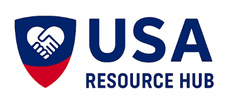Getting denied for a loan can feel like a closed door, especially when you’re trying to cover urgent expenses or rebuild your financial footing. But that denial doesn’t mean you’re out of options. In fact, it may be the perfect time to reconsider where you bank, and whether a credit union might offer a better path forward than a traditional bank.
Both institutions offer checking accounts, savings products, and loans. But when it comes to second chances, flexibility, and community support, credit unions often stand out.
Understanding the Core Differences
Banks are for-profit institutions. They serve customers, generate revenue, and answer to shareholders. Credit unions, on the other hand, are nonprofit cooperatives. They serve members, return profits through lower fees and better rates, and focus on financial wellness rather than maximizing profit.
This difference in structure affects everything from loan approval criteria to customer service. Banks tend to rely heavily on credit scores and automated underwriting. Credit unions may take a more holistic approach, considering your relationship with the institution, your income stability, and your efforts to rebuild.
Why Credit Unions May Be a Better Fit After a Loan Denial
If a bank turned you down for a personal loan, auto loan, or credit card, a credit union might still say yes. Here’s why:
- More flexible underwriting Credit unions often look beyond your credit score. They may consider your employment history, current income, and ability to repay—even if your credit report shows past challenges.
- Lower interest rates Because credit unions are nonprofit, they typically offer lower rates on loans and credit products. This can make repayment more manageable and reduce the risk of future financial strain.
- Fewer fees Overdraft fees, maintenance charges, and ATM fees tend to be lower at credit unions. Some even offer free financial counseling to help you avoid future pitfalls.
- Personalized service Credit unions are known for treating members like people, not account numbers. You’re more likely to speak with someone who understands your situation and can offer tailored solutions.
- Community focus Many credit unions serve specific regions, professions, or groups. This local focus often translates into more responsive service and programs designed for real-world needs.
According to U.S. News, credit unions consistently outperform banks in customer trust and satisfaction, especially when it comes to loan support and financial education.
When Banks Still Make Sense
Banks aren’t all bad. They offer broader access to branches, ATMs, and digital tools. If you travel frequently or need nationwide coverage, a bank may be more convenient. Some banks also offer promotional rates or credit-building products that can help you recover after a denial.
However, banks tend to be less forgiving. If your credit score is below their threshold, your application may be rejected automatically. Appeals are rare, and customer service may be limited to scripted responses.
If you’re considering reapplying with a bank, make sure you’ve addressed the reason for your denial. That might mean paying down debt, correcting errors on your credit report, or increasing your income.
How to Join a Credit Union
Credit unions require membership, but joining is often easier than people think. You may qualify based on:
- Where you live or work
- Your employer or profession
- Membership in a community group or nonprofit
- Family ties to an existing member
Some credit unions allow anyone to join by making a small donation to a partner organization. Once you’re a member, you can access all their financial products, including loans.
A loan denial isn’t the end of your financial journey. It’s a signal to reassess, regroup, and explore alternatives. Credit unions offer a more personal, flexible, and supportive approach, especially for those working to rebuild.


Leave a Reply